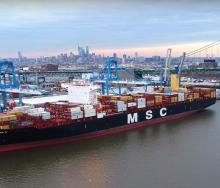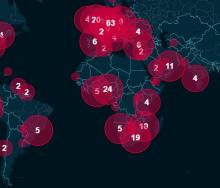South Africa is continuing its dominance over Chile as the top exporter of apples in the Southern hemisphere. Statistics from deciduous fruit grower body, Hortgro, show that up until ETAs for Week 22, the local industry has bested Chile by 2.6 million cartons, or 16%.
The well-known real estate adage ‘location, location, location’ plays a prominent role in this advantage.
“South Africa is closer to Europe, the Middle East and Africa compared to Chile, which reduces transit time and the risk of fruit going off before reaching its destination,” says Pieter-Steyn de Wet, Hortgro agricultural economist and information manager.
“Strong phytosanitary systems also enabled South Africa to maintain and expand access to high-value markets. In addition, South Africa’s available basket of cultivars is also more diversified, which enables us to serve markets more efficiently.”
The local industry also benefited from a boom in investments at about the same time that climate change started eating into Chilean apple yields.
“The local industry is very much export oriented, exporting on average 45% of local production to 86 different countries. Since 2008 the industry has experienced an uptick in investments. This contributed to a growth in hectares as well as the replacement of marginal orchards with better cultivars and rootstocks, as well as improved production technology such as high-density plantings and the use of netting.
“This in turn led to increased production and export volumes. Overall, apple production increased by 30% over the past eight years.”
According to data from the World Apple and Pear Association, the 2025 Chilean apple harvest is expected to be 44% smaller than that of 2016. Over the same period, its exports shrank by 32%.
“Although we are not guaranteed the first place, South Africa is very optimistic about the apple industry and we are experiencing further growth in production as well as exports over the medium term,” says De Wet. “We are positioning the local industry as the supplier of choice of top-quality fruit.”
He says the local industry also has an edge over Chile in terms of research facilities and world-class data systems. Export efforts have been marred by the poor performance of the Cape Town harbour, but new port management, along with new equipment which should start functioning soon, ought to relieve bottlenecks.
However, climate change is a significant challenge for the apple industry worldwide. “It can influence both Chile and South Africa differently from year to year.”













